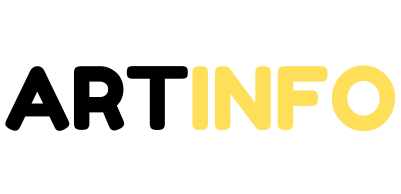Short Description
The field of comics is currently undergoing a significant transformation characterized by increasing diversity in forms, formats, and production methods. Contemporary comics now encompass synthetic comics, operational images, data-driven visualizations, and embodied non-visual formats, expanding beyond traditional conceptual and historical frameworks. Existing research models rooted in artisanal craft traditions, narratology, text-image correlation, and human-centered authorship are proving inadequate for addressing this rapidly evolving landscape.
Current developments necessitate redefining comics as fundamentally technical objects, where technological processes serve as internal creative engines rather than external influences. As computational processes—including machine learning, synthetic image generation, and computer vision systems—increasingly shape comic creation, distribution, and experience, understanding the medium requires moving beyond conventional approaches focused solely on narrative, visual storytelling, or artisanal craft.
Within this expanded computational framework, comics are increasingly functioning as sites of artistic research. These experimental configurations generate knowledge through practice, serving as laboratories for investigating contemporary media production's material conditions. This research-oriented approach leverages comics' unique capacity for relational thinking to examine how technical systems transform creative labor, audience relationships, and narrative possibilities.
An international conference scheduled for April 22-23, 2026, at the Royal Institute of Technology in Stockholm and Uppsala University will examine these developments. The conference aims to contextualize this transformation within comics' longer history of engaging with computational rationality, efficiency, and technical constraints, positioning comics as active computational configurations rather than passive recipients of technological change.
Eligibility
Submissions are welcomed which address the following areas, among others:
- Histories of automation and engineering in comics production and distribution
- Transformations in formats and workflows driven by technological change
- Comics as data: informatization, discretization, and database design
- Human-machine collaborations in past, present, and speculative comics practice
- Audience and user labor in automated platforms and circulation systems
- Data-mining and recirculation techniques in digital comics ecologies
- Machine subjectivities: authorship, intention, and expression in machinic agents
- Computational archiving practices: scraping, clustering, and vectorization
- Speculative and critical practices addressing automation and machinic mediation
- Industrial logics in comics: international and comparative perspectives
- Resistance to automation: sabotage, slow media, and disobedient design
- Operational aesthetics: the visual and affective languages of automation
- Speculative histories and alternative futures of comics as technical media
- Comics as simulations: diagrams, blueprints, and procedural environments
- Comics as artistic research methodologies: practice-based inquiry and knowledge production where comics are used to interrogate emerging technologies and social systems
Submission Requirements
Submissions are invited for the following presentation formats:
- Research Papers (20 minutes + 10 minutes discussion): Traditional academic presentations suitable for theoretical, historical, or analytical work
- Practice-Based Presentations (15 minutes + 15 minutes discussion): Presentations by creators, artists, and practitioners demonstrating work and reflecting on process
- Interactive Demonstrations (30 minutes): Hands-on sessions showcasing new tools, platforms, or methodologies
- Panel Discussions (90 minutes): Collaborative sessions bringing together multiple perspectives on specific themes
- Lightning Talks (5 minutes): Brief presentations ideal for work-in-progress, provocations, or preliminary findings
- Workshop Sessions (3 hours): Extended collaborative sessions for skill-sharing and collective exploration of tools and methods
How to Apply
Abstract length: 250 words
Short bio: 150 words
Send your application to conference@echochamber.be
Entry Fee
None
Location
Uppsala, Sweden
Timeline
- Application Deadline: 1 December 2025
- Conference Date: 22-23 April 2026
